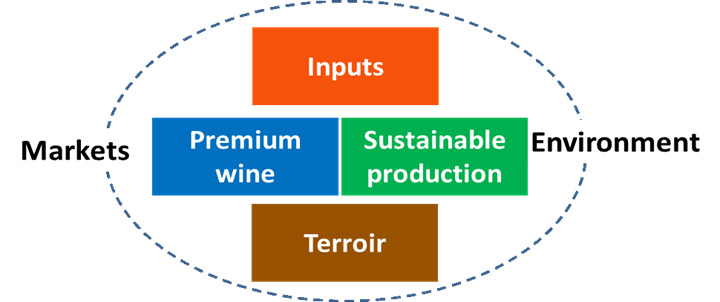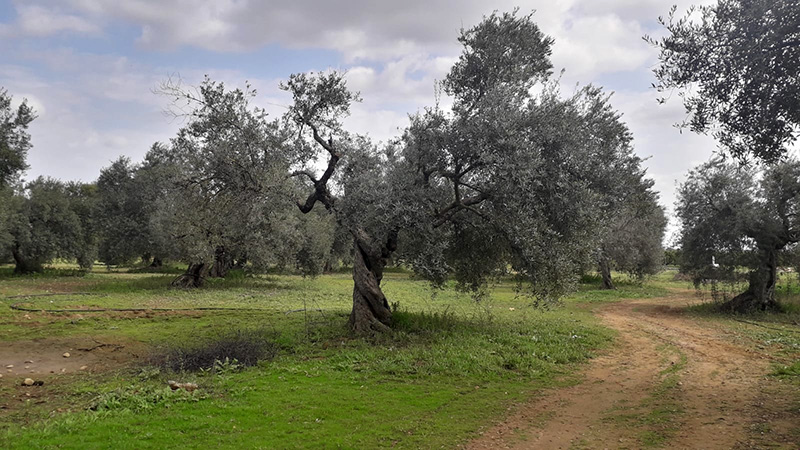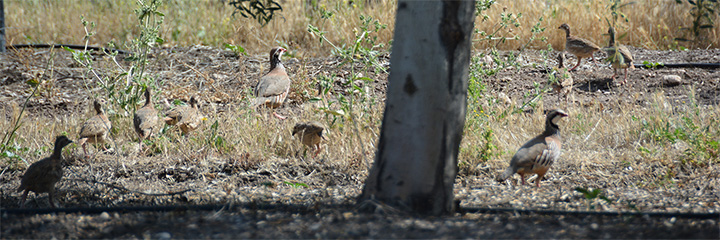On April 6th 2021, the Second Workshop of the CONSOLE Project was held “Strategy for an effective and lasting provision of Agri-environmental and climatic goods by the European agricultural sector” organized, jointly, by the three Spanish entities participating in the project: Evenor-Tech, Universidad Politécnica de Madrid and ASAJA-Sevilla.
The CONSOLE project (www.console-project.eu) is a Horizon 2020 project funded by the European Commission (GA 817949) and with a duration of 36 months, made up of 24 institutions from 13 European countries. The main purpose of the project is to design new voluntary measures for the agricultural sector that benefit them economically and provide Agri-environmental goods to society.
The event was participatory with a total of 15 entities from public and private organizations representing the national territory[1] .
After a general introduction to the conference and its contents, carried out by Francisco José Blanco Velázquez (Evenor-Tech), the program proposed in the agenda was followed, with a presentation of the objectives, scope and methodologies of the CONSOLE project carried out carried out by José Fernando Robles (ASAJA – Seville).
Subsequently, Dr. Ana Luisa Iglesias Picazo (Universidad Politécnica de Madrid) responded with the answers, why do we want these solutions? And how do we execute them?
Dr. Ana Iglesias clearly defined to the attendees that the objective of the solutions is to achieve a series of Agri-environmental goods of interest to the farmer and of common interest; and that their relevance was defined and explained one by one.
Next, and to answer the second question, the strategies and measures to achieve the positive effects on the environment, both in crops and in rural society were explained. And this is done through contractual relationships, which can be based on results (for example, the accounting of existing birds or insects in fields that are cultivated with a specific management); contracts based on collective solutions (farmers coming together to carry out a common action); contracts based on the value chain (such as the sale price of a good produced with certain management, which also offers positive environmental effects) and that involve various links in the chain; and finally, contracts based on land tenure.
Subsequently, Francisco José Blanco – Velázquez presented the representative case studies carried out in Europe. In the national case, it was previously decided to present two of the four case studies developed in the CONSOLE project.
The first of these is the production of organic vine in wineries in the Rivera del Duero, presented by Dra. Ana Luisa Iglesias Picazo (Universidad Politécnica de Madrid); while the second is carried out in Andalusian olive groves of integrated production in Andalusia, which was presented by Dr. María Anaya Romero (Evenor-Tech). In both cases, the benefits of the measures taken were verified.
The case study in organic vineyards
The vineyard contract solution was related to a value chain of grapes (Verdejo and Sauvignon Blanc) produced ecologically by the Herederos del Marqués de Riscal SA winery, in Rueda. The winery – in January 2020 -, contracts the supply of organic grapes to about one hundred farmers, linked to a specific labeling and an advertising campaign in the national and international market, enhancing the branding of the winery. This is causing the model to be exported to other areas to promote the market.

Among the Agri-environmental goods pursued, the [1] increase in rural viability and vitality stands out; since farmers are aware of social and environmental sustainability. In addition, [2] the improvement of the quality – significant – of the products, since they are wines without residues; [3] an increase in both soil and bird biodiversity; and [4] the landscape, which is favoured by agritourism.
It should be noted that the success lies in the close collaboration between the farmers and the consultants, which in addition to being free and can be exported to other types of production.
The case study of an integrated production olive grove
The main objective of integrated production is to reduce negative impacts on soil and water quality; as well as avoiding soil erosion and contamination on olive groves in Andalusia.
To do this, among the objectives of ASAJA-Sevilla and Evenor-Tech was to demonstrate integrated production as a type of contract in the value chain mitigating climate change, developing – also – a monitoring system for soil organic carbon according to management practices. On the other hand, the determination of this organic carbon Earth observation techniques and through the use of simulations predictive models.
And to achieve this, soil organic carbon databases from a period prior to the beginning of integrated production in Andalusia (1990-2000) were analysed. These geodatabases were developed by REDIAM and processed by Evenor-Tech in previous projects, such as Carbosoil’s Decision Support System (DSS), which allows evaluating the carbon sequestration capacity of the soil. Therefore, we started from the information from a database of more than 1,100 soil profiles in which all the information was harmonized and standardized in different soil depths (0 – 25 cm, 25 – 50 cm, and 50 – 75 cm) to have knowledge of carbon sequestration for each type of soil and its use. Further, the information from predictive models of sequestration and emission of soil organic carbon developed in certain commercial farms provided by the company TEPRO and in specific crops (wheat, corn, olive groves, orange and almond trees) and at different depths without taking into account the driving. Based on the processing of this information, the case study was developed, trying to find out on this occasion how the type of management can affect the regulation of carbon content in soils.

The experimental design was carried out on farms under traditional, intensive and super-intensive management, and considering representativeness of soils, climate and geomorphology. For this, 55 olive grove plots in integrated production located in different natural regions of the province of Seville were selected, from the information provided by ASAJA-Sevilla.
The preliminary results obtained in the 55 olive grove plots in integrated production, show that the organic carbon of the soil in olive tree crops under integrated production and different types of soils, is significantly higher compared to other types of management carried out previously. The next results that will come to light at the end of 2021, will argue a system for monitoring, management practices with earth observation techniques for the evaluation of carbon sequestration in soils.
As a participatory activity, attendees completed an online survey at the same time where the main strengths and weaknesses of the four types of contractual relationships analysed in the CONSOLE project and their relationship with Agri-environmental goods were discussed together. In addition, the participants were able to give their point of view on a hypothetical contractual relationship and its potential implementation at the local level. It was highlighted by the attendees that in order to design and facilitate the implementation of this type of voluntary measures, bottom-up participation and co-development with farmers is key to the adoption of these measures. The relationship between the responses obtained during the day and the information from the interviews with farmers that are being carried out will be the preliminary step for the design of future voluntary measures that guarantee the economic viability of the rural world, the attraction of new generations of farmers to combat depopulation and the provision of agri-environmental goods to improve environmental and human health.

